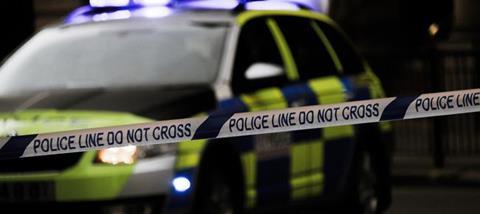
There’s an often unspoken assumption that churches are places for people to feel safe in. So the news that three people were stabbed during a church service in Birmingham has come as a shock.
Sadly this isn’t the first time a European church has experienced a knife attack. In July 2016 two Islamic State militants brutally murdered Catholic Priest Fr Jacques Hamel during a service in France. That event led to armed police officers standing guard outside Canterbury Cathedral and the Home Office pledging £2.4m as a security fund for religious buildings. More recently, the Church of England has added guidelines on safety and security to its website.
Although the Birmingham incident was not terror-related, the questions will inevitably come – should church security be beefed up? Are churches an easy target? Are we safe?
I remember visiting a church inside America’s Bible Belt. As I looked around the 300-seater auditorium, I realised a significant number of my fellow Christians were 'carrying concealed'. In other words, they had a loaded gun inside their coat pocket. The reasoning in that part of the world is often: 'The only thing which will stop a bad guy with a gun is a good guy with a gun'.
Brits may sneer at this logic. There’s often a vast chasm between our two nations when it comes to dealing with firearms. The UK may not have a serious gun problem, but we do have a knife problem. And given that a stabbing has happened inside one of our church buildings, its right that security questions are addressed.
Christian places of worship are open to anyone and this policy should be defended. The Church exists to welcome everyone – including (especially) those who might be considered dangerous. After all, the man who wrote most of the New Testament was once incredibly dangerous. Paul had approved the arrest and murder of Christians. Yet Christ intervened and his life became a testimony to God’s grace. We might pray that a similar testimony would come from the man responsible for the Birmingham stabbing.
What churches can do
Clearly there are important caveats to consider regarding a policy of churches flinging wide the doors and being welcoming to all. In recent years, congregations have taken issues of safeguarding and protecting children more seriously than ever. And rightly so. No one is suggesting convicted criminals should be given free-reign to walk around our children’s groups. So the next time someone complains about the cost and time required to fill in a DBS form, remind them of who that paperwork actually protects.
Welcome teams can often play a vital role when it comes to safety in churches. You may have assumed they’re simply there to be a friendly face and perhaps hand out Bibles or notices. While that’s true, some also take a proactive security role in keeping an eye out for anyone who looks suspicious and being ready to raise the alarm if that becomes necessary.
The Bible actually promises us the opposite of safety
These measures can only take us so far. We can (and should) vet those who want to be involved in children’s or youth ministry. We can’t (and shouldn’t) be locking our churches in the week, wasting thousands of pounds on unnecessary state of the art CCTV equipment or worrying our congregations unnecessarily with talk of 'we might be a target, let’s be careful'.
After any serious incident, there can be a tendency in some quarters to give a knee jerk reaction. Following the terrible attack on Westminster Bridge there were calls to immediately change all security protocol around the Palace of Westminster. The murder of PC Keith Palmer in that attack was undoubtedly tragic, yet the security system which had been put in place had actually worked: The terrorist was stopped. He failed to penetrate the security surrounding that building.
In the same way, one terrible incident in one church doesn’t mean every church in the country is under greater threat and must alter its security arrangements.
Uncomfortable living
But there’s a wider question here: Does Jesus promise us safety? Search your Bible all you want, but the good book has little to say about living a comfortable life. No one likes to admit it, but the Bible actually promises us the opposite of safety. Instead its full of warnings about persecution and hardships for those who take the difficult but worthwhile road of following God.
The words of Dr John Sentamu come to mind. In an interview with Premier, the Archbishop of York said: "[Even] Jesus wasn’t protected. They arrested him in the middle of the night. He ended up being executed…We’re following a crucified saviour and our job is to be as loving and sometimes as vulnerable as he was."
So by all means, let’s take sensible precautions. But let’s not make the mistake of believing we’re guaranteed an easy life either inside or outside our buildings.
How can we ensure our buildings are open to everyone while taking seriously our duty to protect congregants? There’s no easy answer. Instead real wisdom is needed on these issues. It isn’t right to be gung-ho about security. But neither should we be building higher walls and bigger fences. As William Temple said: "The Church is the only organisation that does not exist for itself, but for those who live outside of it." So if we’re forced to choose between allowing outsiders into our churches and making insiders feel safe, let’s be brave and choose the former.




























